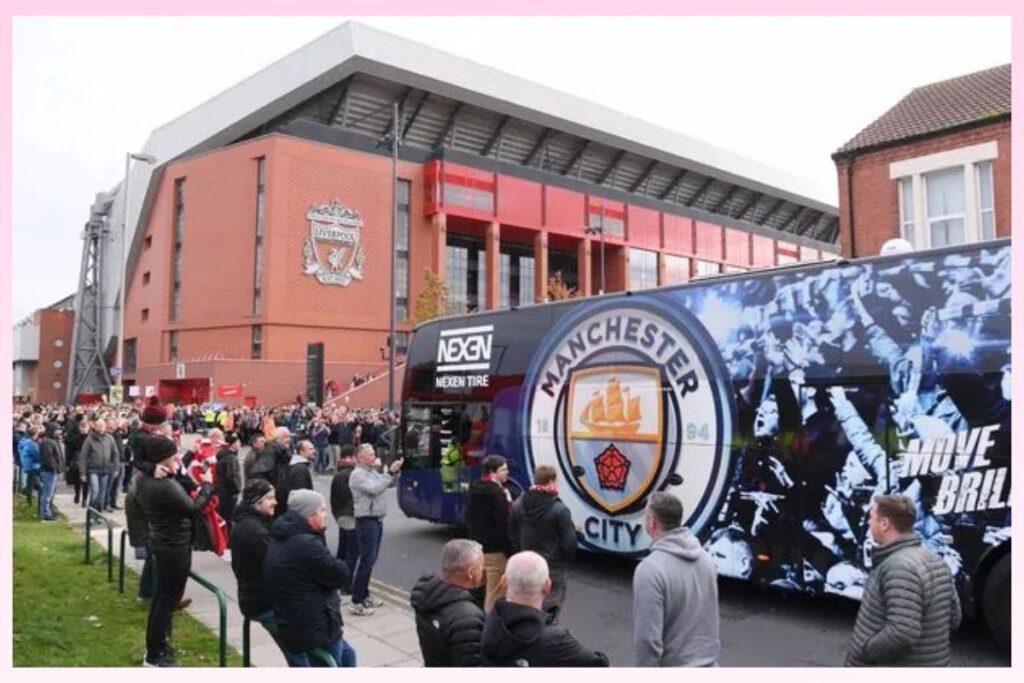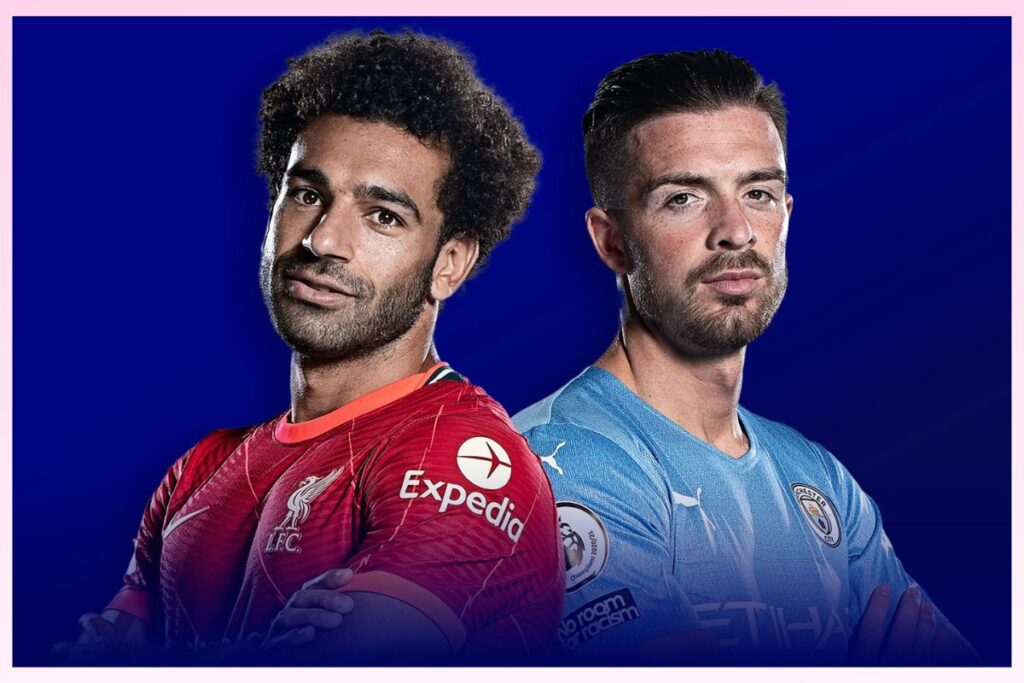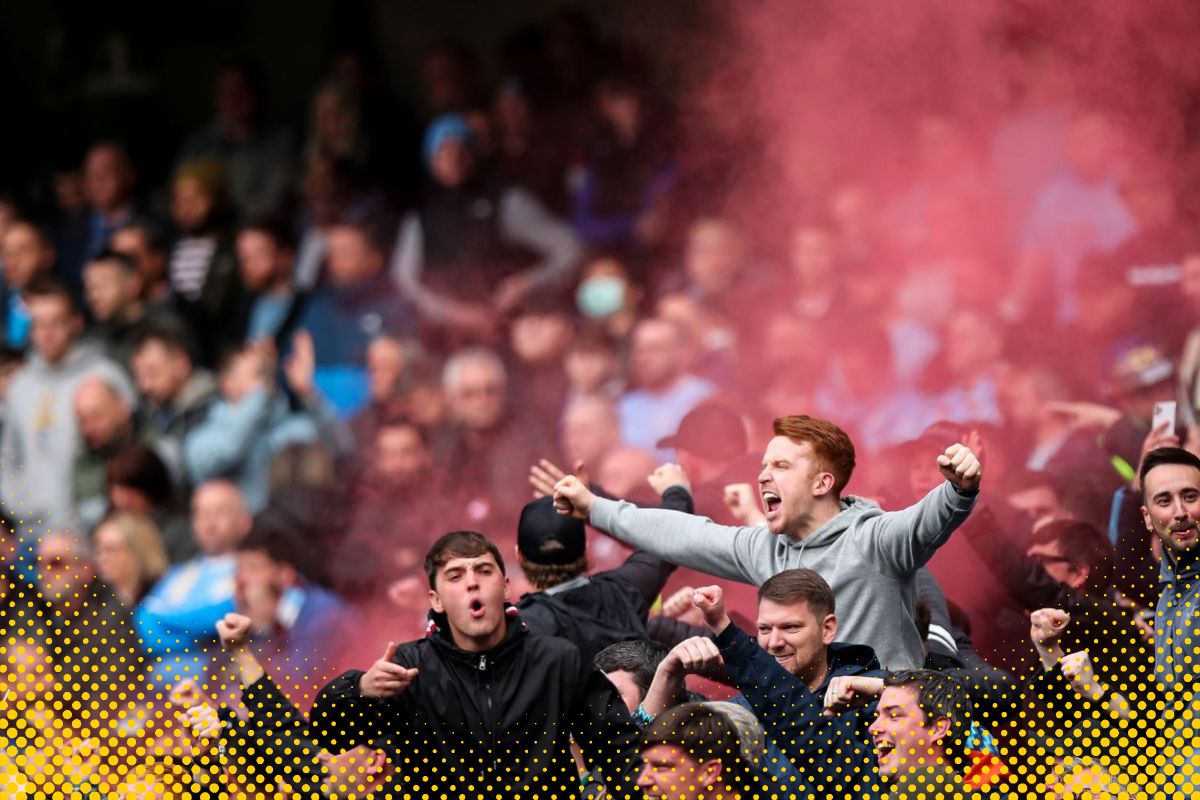The intense rivalry between Man City and Liverpool reached a critical point during the 2022/23 season, highlighting its increasingly toxic nature. In December 2022, ahead of a Carabao Cup match at the Etihad, the clubs issued a joint statement urging fans to create a respectful atmosphere after tensions had escalated during their October clash at Anfield. The Anfield encounter saw City fans engage in tragedy-related chants and the visiting team’s bus attacked for the second time as it departed the stadium.
However, the plea for calm was quickly overshadowed by further hostility. Shortly after the statement, a young City supporter was injured by a plastic pint glass filled with coins hurled from the home section. Such incidents, though attributed to a minority of fans, revealed the depth of animosity between the two clubs, which extended beyond the terraces to their boardrooms. The rivalry was fueled by contrasting approaches to success and the fact that each team had been a significant obstacle to the other’s ambitions. This competitive dynamic only deepened the division between the clubs, emphasizing the more extreme and negative aspects of their relationship.
Little Learnt From Past Mistakes
In recent years, tensions between Man City and Liverpool have diminished, partly due to Arsenal emerging as City’s main Premier League rival. With Jurgen Klopp’s departure on the horizon, Arne Slot may have the opportunity to distance Liverpool from past hostilities. Additionally, the joint protest by Man City and Liverpool fans before their recent Anfield clash serves as a powerful reminder of the uncomfortable truths surrounding the clubs they support.
Despite their intense rivalry, Man City and Liverpool fans share numerous parallels in their recent experiences. Both sets of supporters endured the shock of their clubs briefly joining the ill-fated European Super League, a decision that sparked widespread backlash. The shared frustrations didn’t end there.

Liverpool fans faced neglect from UEFA during the chaotic 2022 Champions League final, while City fans encountered similar disregard in Istanbul during the 2023 final. Although UEFA avoided another major scandal, the experiences showed that little had been learned from past mistakes. Furthermore, television broadcasters have consistently prioritized profit over fan convenience, routinely scheduling matches in ways that make traveling difficult for supporters. This disregard for fan welfare highlights an ongoing issue in modern football, uniting Man City and Liverpool fans in shared frustration.
While the rivalry between the two clubs has defined much of their recent history, these shared challenges underline the commonalities in the experiences of their supporters, offering an opportunity for reflection and perhaps a shift in the nature of their relationship.
‘We Can Reverse this Trend’
Despite their public rivalry, Man City and Liverpool appear to be converging in their approaches, as evidenced by their shared involvement in the Super League debacle. Both clubs are grappling with similar concerns, such as the impact of ticket distribution in expanded stands on match day atmosphere. Additionally, both raised season ticket prices for the current season. While City backed down on plans to charge disabled fans for parking after backlash, there is a clear trend towards prioritizing financial gains over supporter interests.
The leadership of both clubs may project different images of how they treat fans, but their relentless pursuit of profit has left loyal supporters feeling exploited. This sentiment is fueling the ongoing protests, with the message: “Football does not have a revenue problem; it has a spending problem – and loyal supporters should not bear the cost.”

Nick Clarke, from MCFC Fans Foodbank Support, expressed pride in the joint protest, noting that despite the increasing animosity between Man City and Liverpool fans due to their on-pitch rivalry, both fanbases are uniting to tackle a more pressing issue. “Tribalism holds football fans back from addressing the real threats to the game we built—working-class fans are being priced out before our eyes. We can reverse this trend,” Clarke said. These protests reflect growing concerns among supporters about the direction the sport is heading, where the financial interests of clubs are overshadowing the loyalty and well-being of the very fans who have supported them for years.
Putting Differences Aside
The foodbank group was established in 2020 with support from Liverpool fans, so the solidarity between Man City and Liverpool supporters is not new, despite the more prominent headlines given to their tribal rivalry. Similarly, fans of Manchester United and Everton will also unite in protest at Old Trafford on Sunday. In recent years, clubs have exploited these divisions to focus on a common goal—generating more revenue.
Despite the intense rivalry between Man City and Liverpool, their joint protest sends a powerful message of unity, showing that supporters, regardless of club allegiance, are standing together to address the shared challenges they face. After the match, putting aside differences for the sake of this unity could ultimately benefit all fans, highlighting the importance of working together to address the bigger issues in football.
Conclusion
The growing unity between Man City and Liverpool fans, along with supporters from other clubs like Manchester United and Everton, highlights a crucial shift in football culture. While intense rivalries have often dominated headlines, the shared struggles of fans, from ticket prices to exploitation by clubs pursuing profit, have brought them together in a powerful stand for their rights.
The protests and solidarity shown between these fanbases reflect a deeper issue that transcends individual clubs—the exploitation of loyal supporters. By setting aside traditional tribalism, fans are sending a strong message that football should prioritize its supporters, rather than treating them as a means to financial gain. This collective effort signals hope for reversing the trend of fan exclusion and offers a chance to restore the balance between commercial success and the needs of the people who form the heart of the sport.
Read all Other Posts on Man City and Liverpool
Find the Latest News on Player Ratings | Transfers | Prematch | Postmatch
Stay tuned for more updates on Liverpool FC Times and Stories. Your thoughts are always welcome in the comments section. Thank you for your continued support!
YNWA (You’ll Never Walk Alone)!
The Liverpool FC Times Team
LiverpoolFCTimes.com
